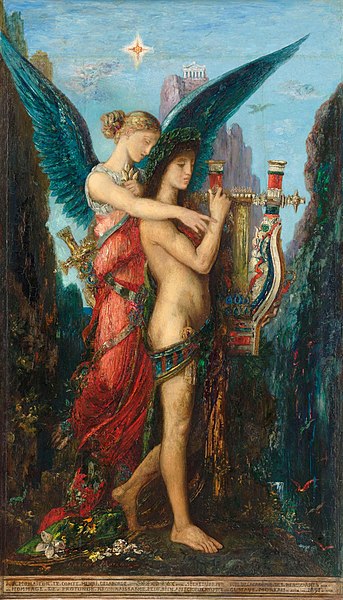Theognis of Megara was a Greek lyric poet active in approximately the sixth century BC. The work attributed to him consists of gnomic poetry quite typical of the time, featuring ethical maxims and practical advice about life. He was the first Greek poet known to express concern over the eventual fate and survival of his own work and, along with Homer, Hesiod and the authors of the Homeric Hymns, he is among the earliest poets whose work has been preserved in a continuous manuscript tradition. In fact more than half of the extant elegiac poetry of Greece before the Alexandrian period is included in the approximately 1,400 lines of verse attributed to him, though several poems traditionally attributed to him were composed by others, e.g. Solon and Euenus. Some of these verses inspired ancient commentators to value him as a moralist yet the entire corpus is valued today for its "warts and all" portrayal of aristocratic life in archaic Greece.

A scene from Plato's philosophical work The Symposium by Anselm Feuerbach
Hesiod was an ancient Greek poet generally thought to have been active between 750 and 650 BC, around the same time as Homer. He is generally regarded by Western authors as 'the first written poet in the Western tradition to regard himself as an individual persona with an active role to play in his subject.' Ancient authors credited Hesiod and Homer with establishing Greek religious customs. Modern scholars refer to him as a major source on Greek mythology, farming techniques, early economic thought, Archaic Greek astronomy, cosmology, and ancient time-keeping.
Hesiod
Hesiod and the Muse (1891), by Gustave Moreau. The poet is presented with a lyre, in contradiction to the account given by Hesiod himself in which the gift was a laurel staff.
The Dance of the Muses at Mount Helicon by Bertel Thorvaldsen (1807). Hesiod cites inspiration from the Muses while on Mount Helicon.
Modern Mount Helicon. Hesiod once described his nearby hometown, Ascra, as "cruel in winter, hard in summer, never pleasant."





